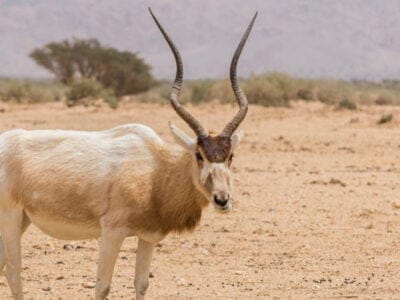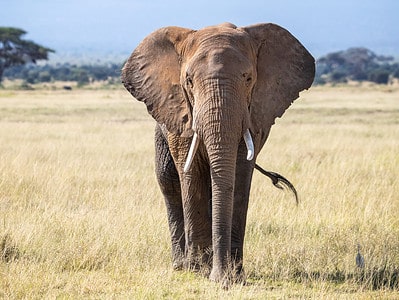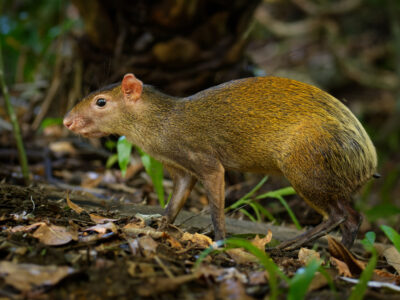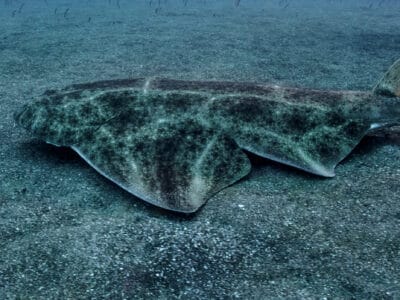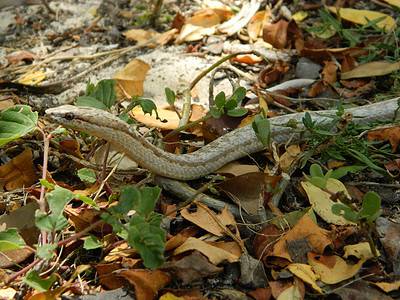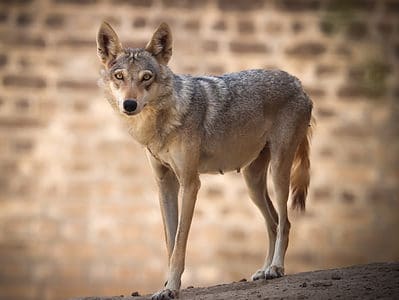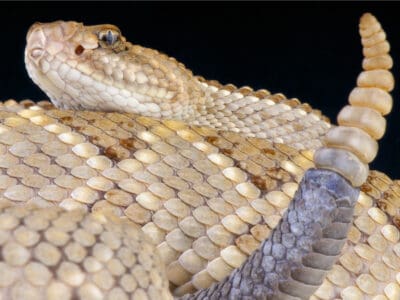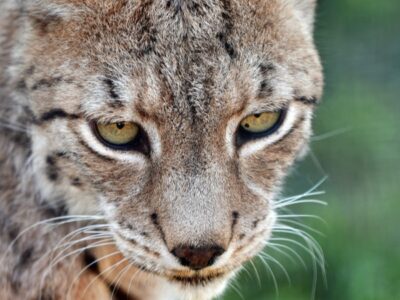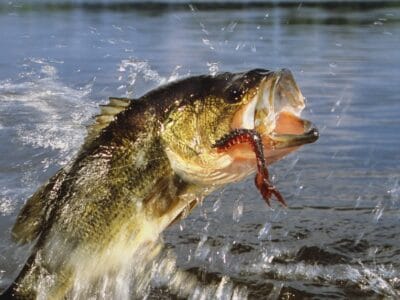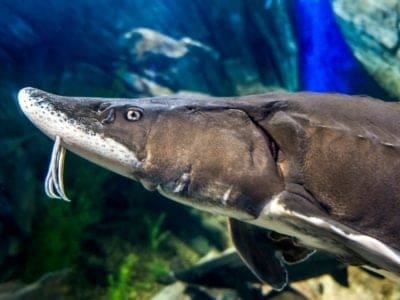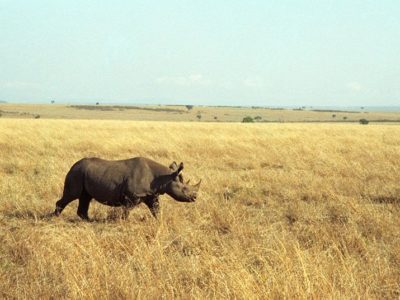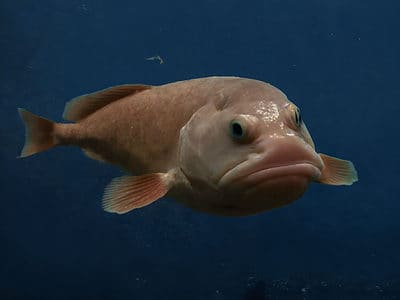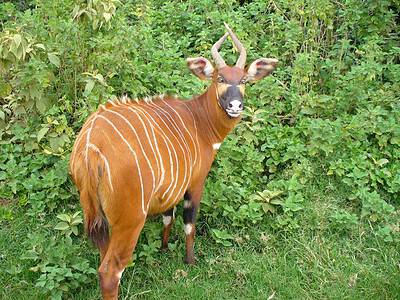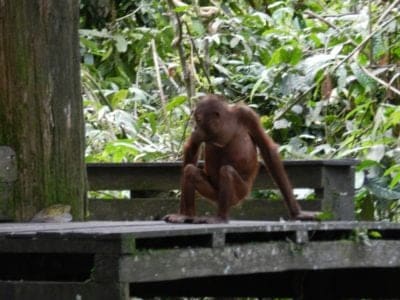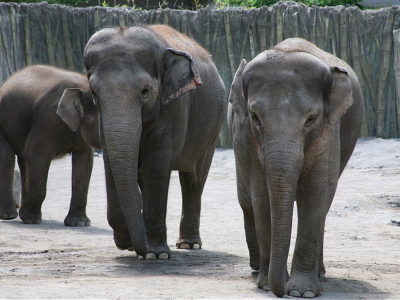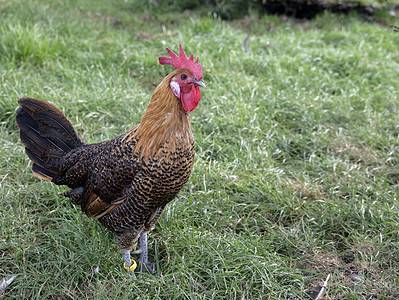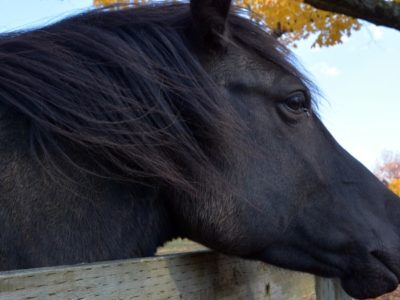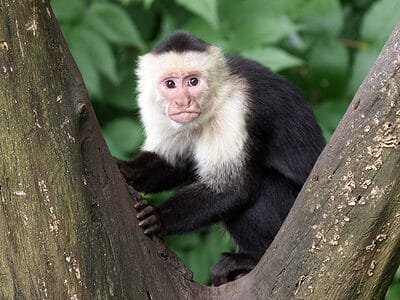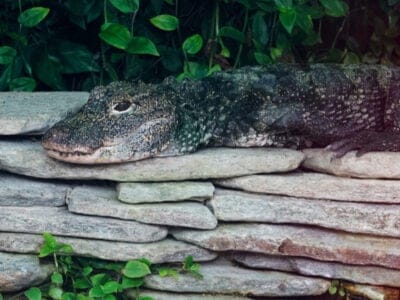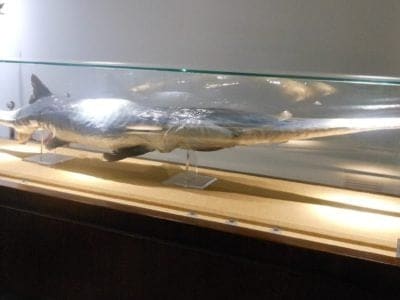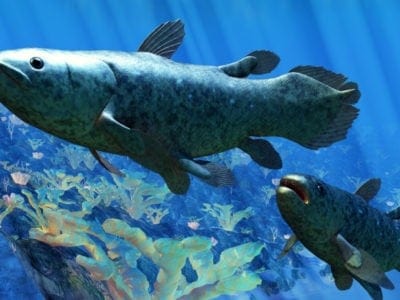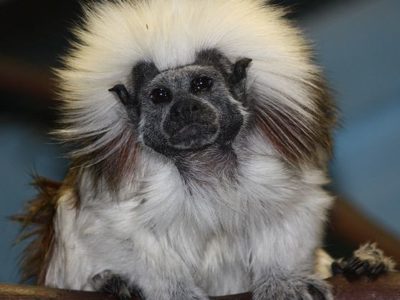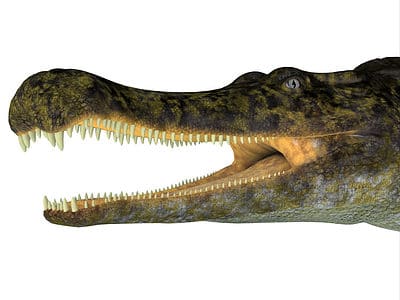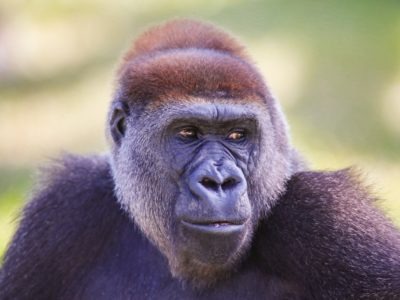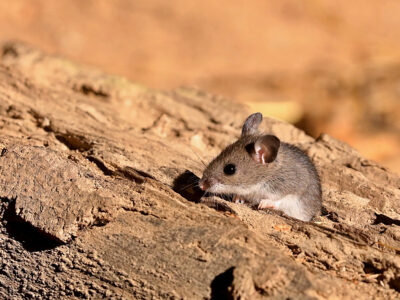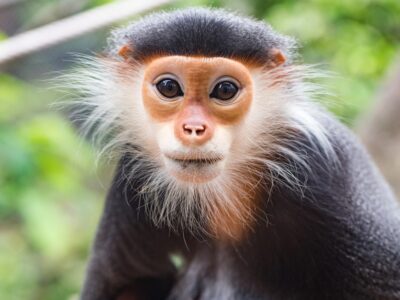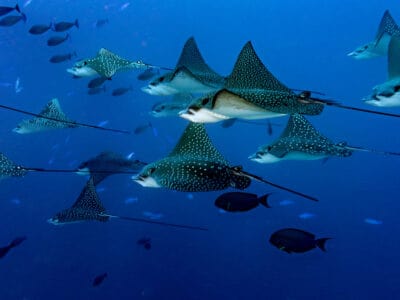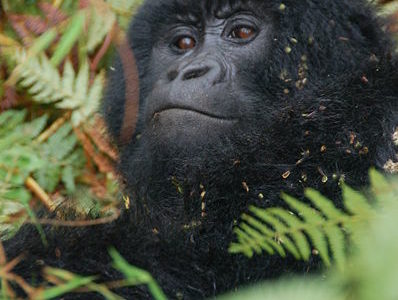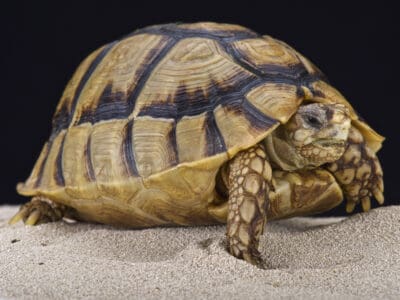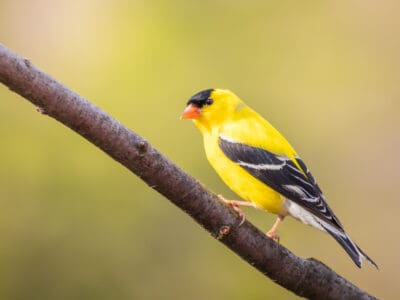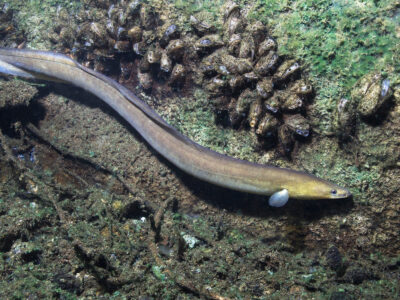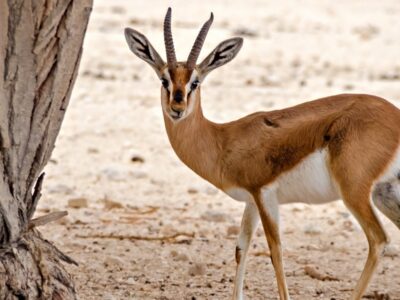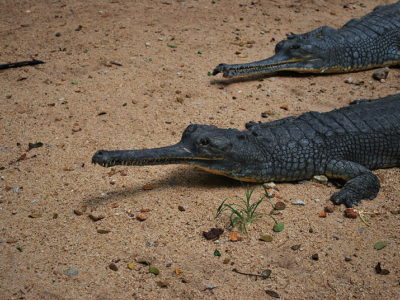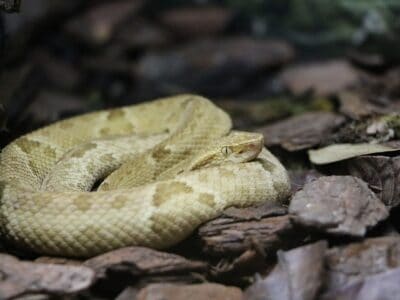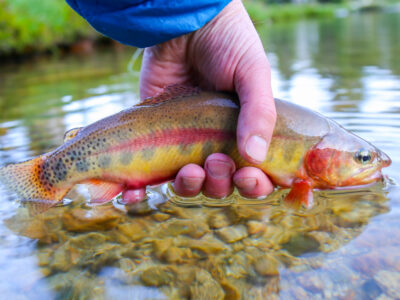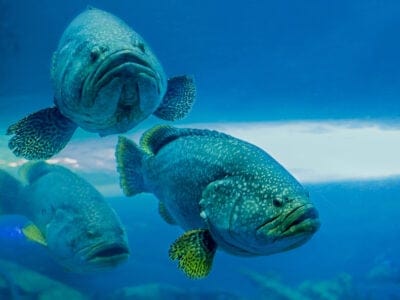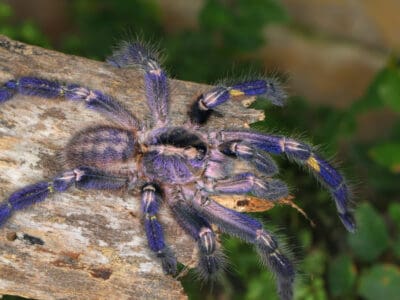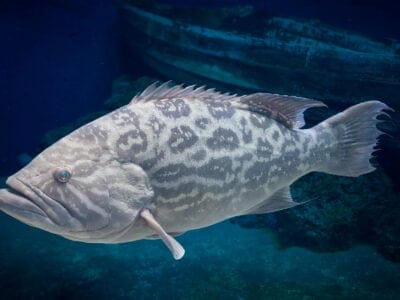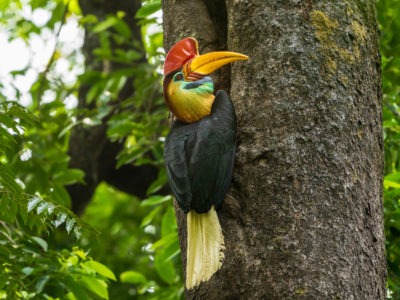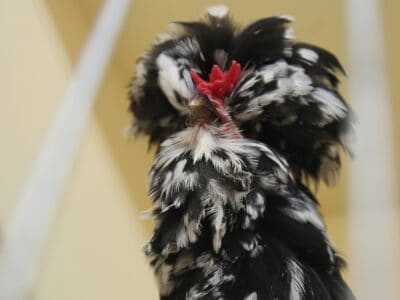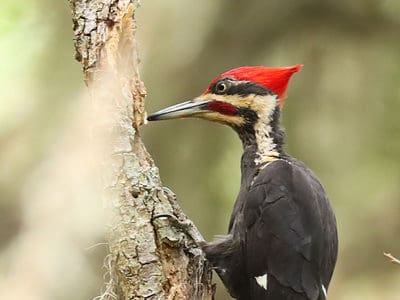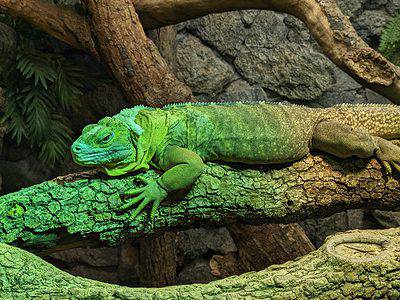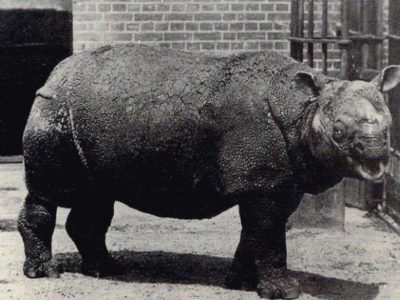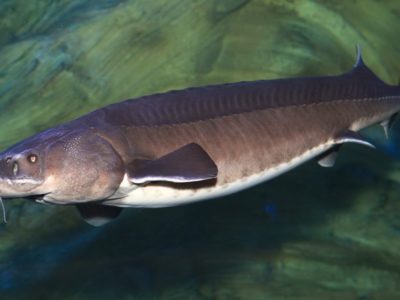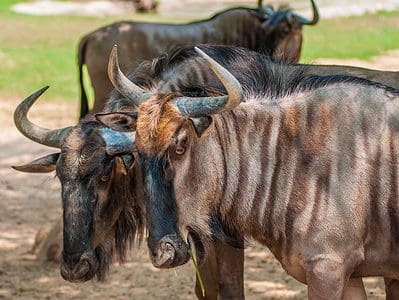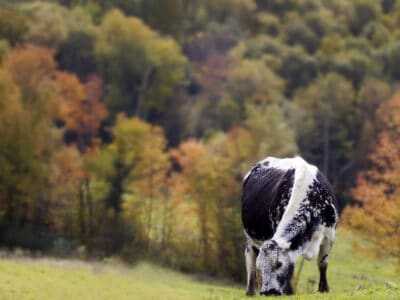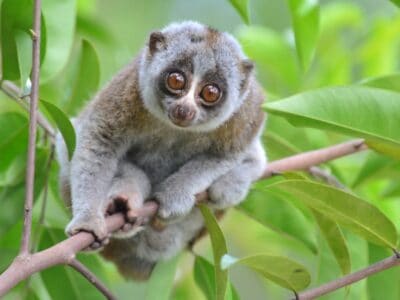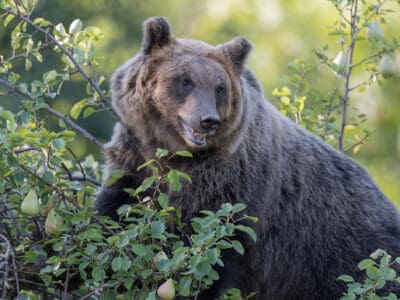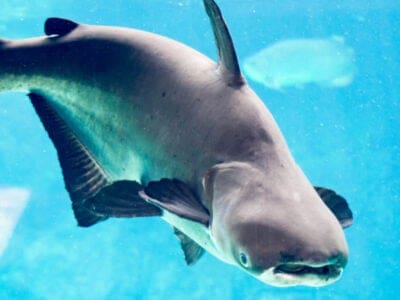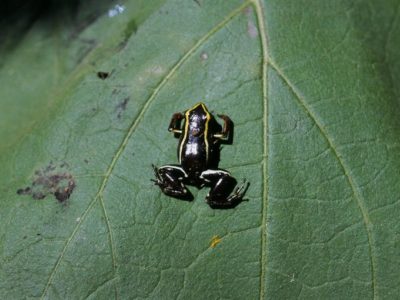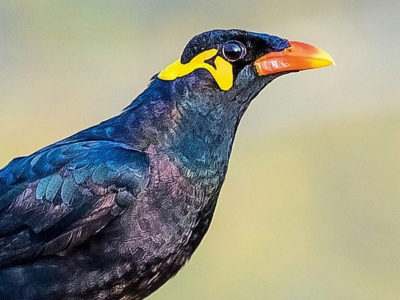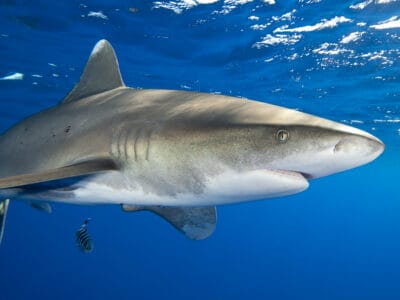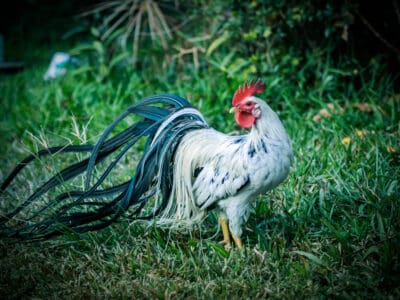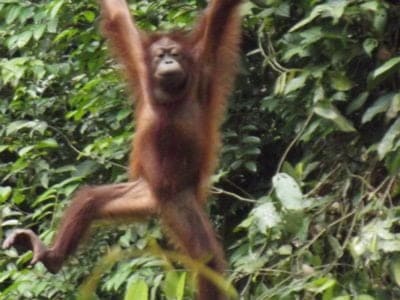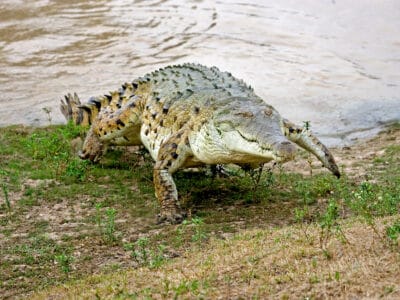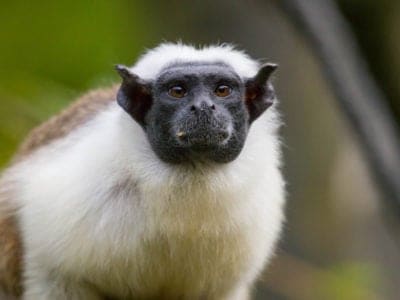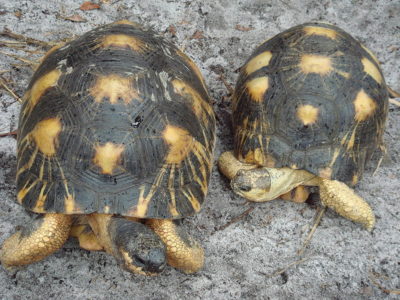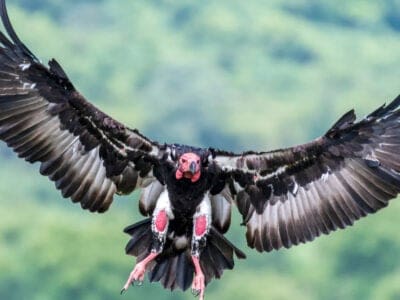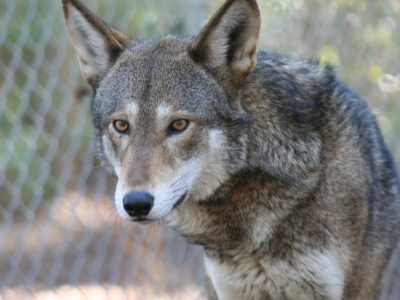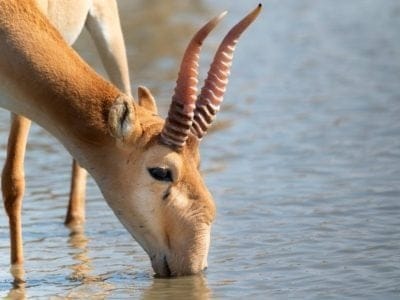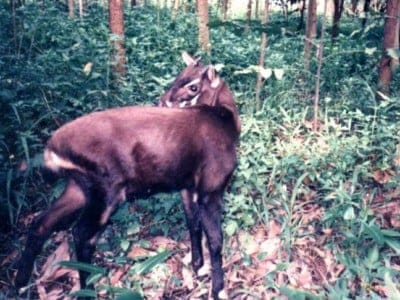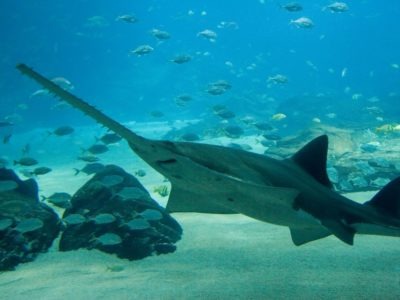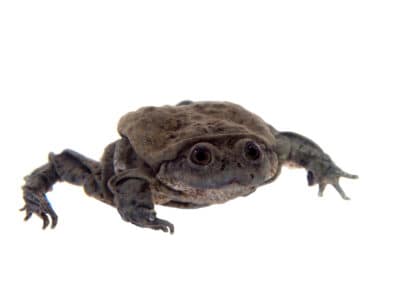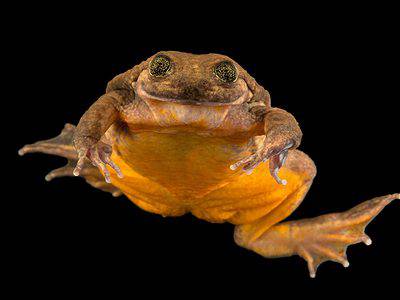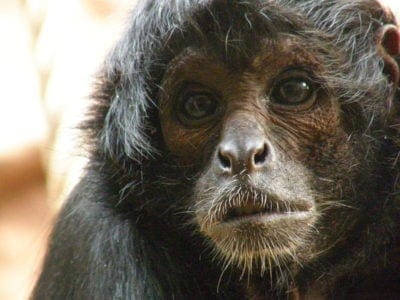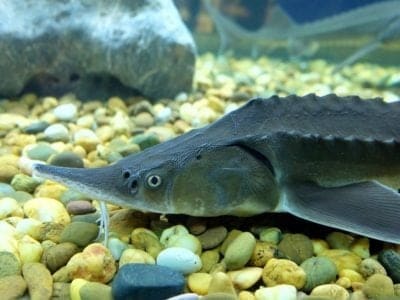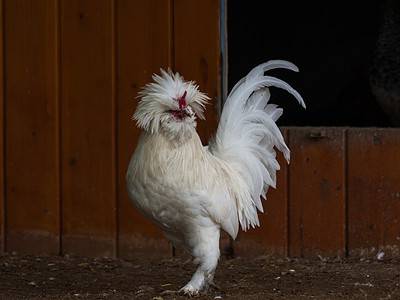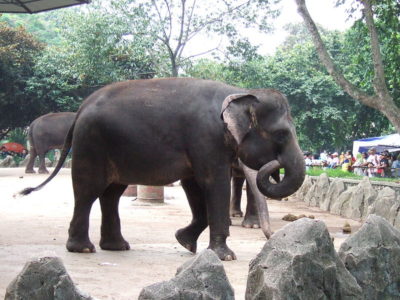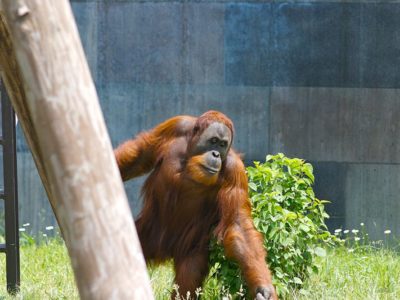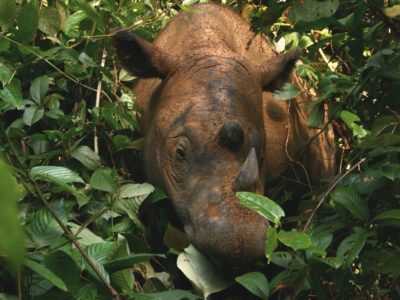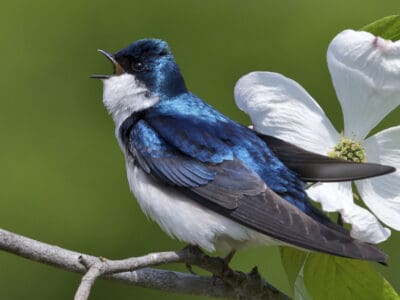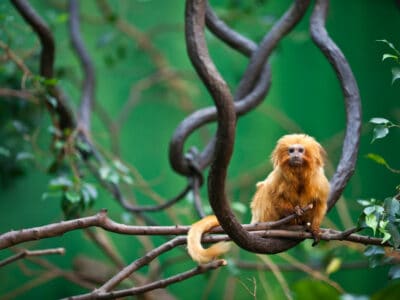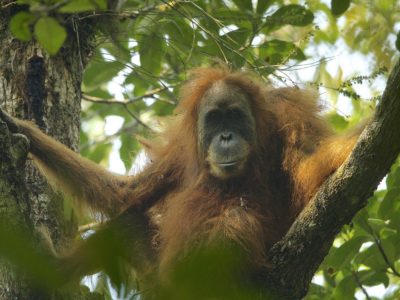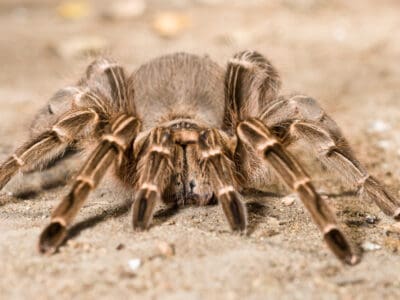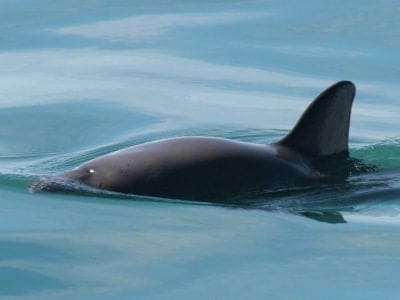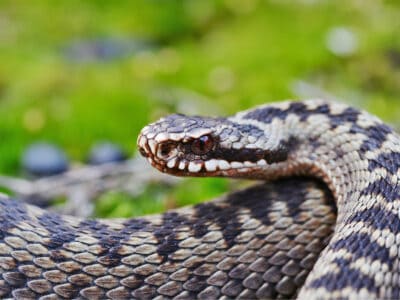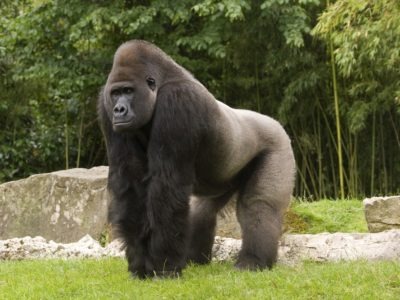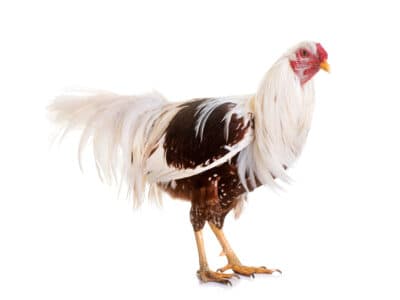Critically Endangered Species (original) (raw)
Updated: February 3, 2021
Marten_House/Shutterstock.com
Critically endangered species are at a very high risk of becoming extinct in the wild or extinct. For an animal to be added to the category, it must meet any of the following criteria regarding population or habitat decline:
Rapid Population Reduction
- A taxon’s population size is reduced by 90 percent or more over 10 years or three generations, whichever is longer, and the reduction causes are understood, reversible, and have stopped. For example, let’s pretend there’s a bird species that traditionally had a population of 2000. Over 10 years, it drops to 200 because a logging company demolished its habitat. If laws are put in place that bar the logging company from continuing to fell trees in the habitat, then the IUCN will list it as “critically endangered” because the reason for the decline is understood and ceased.
- A taxon’s population size is reduced by 80 percent or more over 10 years or three generations, whichever is longer, but the reduction cause may not be understood or reversible. For example, let’s say there’s a bird species that traditionally had a population size of 2000. Over 10 years, it drops to 400. However, scientists can’t figure out why they’re dying off. In this case, the IUCN would list it as “critically endangered” because the decimation is evident, but scientists can’t figure out why.
- A taxon’s population size is reduced by 80 percent or more over 10 years or three generations, whichever is longer, and the animal is also battling habitat shrinkage or another threat.
Geographic Reduction
The area where a species can live is reduced to 100 square kilometers or less, or the area that the species currently and actually occupies is reduced to 10 square kilometers, and at least two of the following criteria are also met:
- The population is known to exist in only one location.
- Scientists observe or predict that the habitat will continue to shrink or be degraded, and there’s also a decline in subpopulations or the number of reproducing adults.
- Scientists observe extreme fluctuations in the number of locations, subpopulations, or the number of reproducing adults.
Dangerously Low Number of Adults
- A taxon’s population only has 250 or fewer adults left, and a 25 percent decline is anticipated within three years or one generation, whichever is longer. If none of the taxon’s subpopulations contain more than 50 adults, or 90 percent of the species’ adults live in one subpopulation, it will qualify as critically endangered.
- Scientists observe extreme fluctuations in the number of mature adults in a given population.
Dangerously Low Overall Population Size
Only 50 or fewer individuals of a taxon remain.
Expected Rapid Decline
Research and studies indicate that there’s a 50 percent or greater chance that the taxon will be extinct in the wild within 10 years or three generations, whichever is longer.
How many species are currently critically endangered?
In the latest iteration of the list, 3,947 taxons — aka scientifically accepted units of species — are classified in the critically endangered category.
Critically Endangered Species
Addax
The hooves of the addax are splayed and have flat, springy soles, one of the adaptations that help it walk over sand.
African Elephant
Both male and female African elephants have tusks. In Asian elephants, only the males have tusks.
Agouti
The agouti is one of the only animals that can crack open Brazil nut pods!
Amur Leopard
The Amur leopard may be the rarest big cat on Earth!
Angelshark
The angelshark’s range has contracted by more than 80% in the past century.
Balkan Lynx
The Balkan lynx communicates mostly with its ears
Bass
Prized by sport fishers for their size and strength
Blobfish
One of the ugliest creatures in existence!
Bongo
Long and heavy spiralled horns!
Campine Chicken
Campine chickens were exported from Belgium by Julius Caesar!
Canadian Horse
Canadian horses are believed to generate more power per pound of body weight than any other horse breed in the world.
Chinese Alligator
Unlike other alligators, the Chinese alligator is armored all over, even on its belly.
Coelacanth
The coelacanth first evolved almost 400 million years ago.
Crocodylomorph
Crocodylomorphs include extinct ancient species as well as 26 living species today.
Deer Mouse
Roughly 60 different species of deer mice range from Canada to Central America!
Desert Wolf
These tiny wolves prefer to cohabitate in pairs or groups of three (generally two males and a female).
Douc
When these monkeys want to mate, they wiggle their eyebrows.
Egyptian Tortoise
The Egyptian tortoise is one of the smallest tortoise species in the world.
Finch
Finches have strong, conical bills that help them break open tough seeds that many other birds cannot.
Freshwater Eel
Freshwater eels are actually catadromous, meaning they migrate to saltwater to spawn
Gazelle
Named for the Arabic word for love poems
Gharial
Males can blow bubbles using the bump on their snout!
Golden Mole
The golden mole is so named because of its iridescent coat, which gives it a shining, rainbow-like effect.
Great Hammerhead Shark
Great hammerhead sharks have a 360-degree view because their eyes are situated on the ends of their mallet-like heads.
Grouper
Many grouper can change their sex, and it is always from female to male.
Hornbill
The bird has a massive horn on its bill!
Houdan Chicken
The Houdan chicken has a round, fluffy crest and five toes on each foot!
Kouprey
The kouprey is one of the rarest mammals in the world
Lineback Cattle
The lineback cattle has been an integral part of rural New England society for more than 200 years!
Loris
Like all lorises, slow loris has a cute wide-eyed look, but it also has a venomous sting that can rot human flesh.
Marsican Brown Bear
They do not fall completely asleep during hibernation but wake up from time to time during the winter to walk around.
Myna Bird
Many people believe the hill myna bird is better at mimicking humans than a parrot!
Onagadori Chicken
The Onagadori, the chicken with the world's longest tail, was declared a Natural Monument of Japan in 1952.
Orinoco Crocodile
Orinoco crocodiles are the largest predators in South America; they're also going extinct!
Red-Headed Vulture
Not exclusively carrion eaters, these birds are also opportunistic hunters
Red Wolf
There are only 17-19 in the wild!
Saiga
Large noses help filter out dust
Sandpiper
Some sandpipers can migrate more than 8,000 miles without stopping!
Saola
Only known to science since 1992!
Sawfish
Sawfish teeth keep growing as the fish gets older
Scrotum Frog
The frog's ears are underdeveloped, and if it hears it probably does so through its lungs.
Spider Monkey
Belongs to the only family of primates in the world with full prehensile tails!
Sturgeon
Large species can swallow whole salmon
Sultan Chicken
Sultan chickens were bred for royalty and have more unique and distinctive features than any other breed!
Swallow
swallows have aerodynamic bodies for hunting in flight
Tamarin
These tiny yet intelligent monkeys often give birth to fraternal twins.
Tarantula
More than 1000 species of tarantulas have been identified all around the world!
Vaquita
Smallest cetacean in the ocean
Viper
Vipers are one of the most widespread groups of snakes and inhabit most
Yokohama Chicken
Yokohama chickens have snow white feathers with tails reaching up to 4 feet in length.
List of Critically Endangered Species
- Addax
- African Elephant
- Agouti
- Amur Leopard
- Angelshark
- Antiguan Racer Snake
- Arabian Wolf
- Aruba Rattlesnake
- Balkan Lynx
- Bass
- Beluga Sturgeon
- Black Rhinoceros
- Blobfish
- Bongo
- Bornean Orangutan
- Borneo Elephant
- Campine Chicken
- Canadian Horse
- Capuchin
- Chinese Alligator
- Chinese Paddlefish
- Coelacanth
- Cotton-top Tamarin
- Crocodylomorph
- Cross River Gorilla
- Deer Mouse
- Desert Wolf
- Douc
- Eagle Ray
- Eastern Gorilla
- Egyptian Tortoise
- Finch
- Freshwater Eel
- Gazelle
- Gharial
- Golden Lancehead
- Golden Mole
- Golden Trout
- Goliath Grouper
- Gooty Sapphire Tarantula
- Great Hammerhead Shark
- Grouper
- Hornbill
- Houdan Chicken
- Ivory-billed woodpecker
- Jamaican Iguana
- Javan Rhinoceros
- Kaluga Sturgeon
- Kouprey
- Lineback Cattle
- Loris
- Marsican Brown Bear
- Mekong Giant Catfish
- Monte Iberia Eleuth
- Myna Bird
- Oceanic Whitetip Shark
- Onagadori Chicken
- Orangutan
- Orinoco Crocodile
- Pied Tamarin
- Radiated Tortoise
- Red-Headed Vulture
- Red Wolf
- Saiga
- Sandpiper
- Saola
- Sawfish
- Scrotum Frog
- Sehuencas Water Frog
- Spider Monkey
- Sturgeon
- Sultan Chicken
- Sumatran Elephant
- Sumatran Orangutan
- Sumatran Rhinoceros
- Swallow
- Tamarin
- Tapanuli Orangutan
- Tarantula
- Vaquita
- Viper
- Western Gorilla
- Western Lowland Gorilla
- Yokohama Chicken
Share on:
About the Author
A-Z Animals Staff
AZ Animals is a growing team of animals experts, researchers, farmers, conservationists, writers, editors, and -- of course -- pet owners who have come together to help you better understand the animal kingdom and how we interact.
Thank you for reading! Have some feedback for us?
Thank you for your feedback!
We appreciate your help in improving our content.
Our editorial team will review your suggestions and make any necessary updates.
There was an error submitting your feedback. Please try again.
